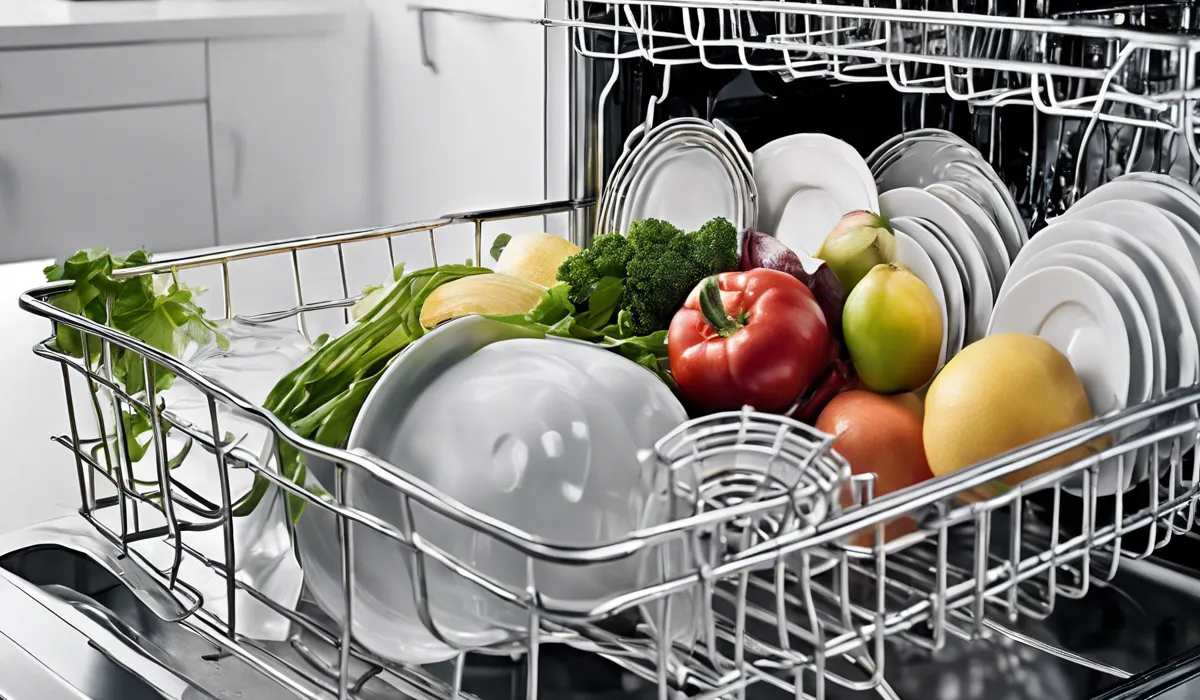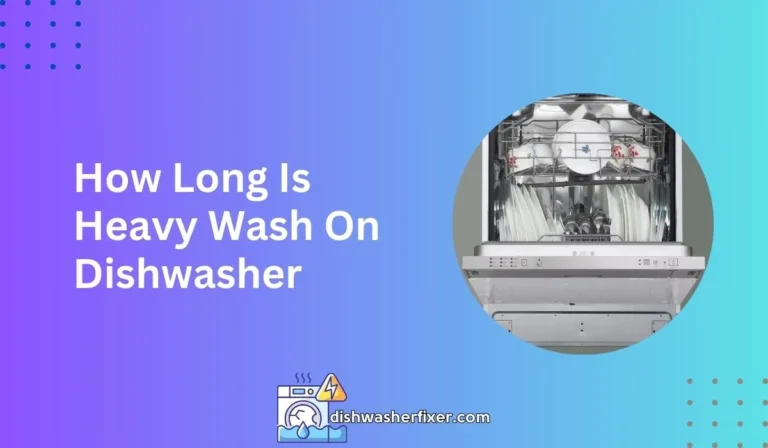What Happens If You Don’t Use Your Dishwasher? Risks & Solutions!
If you don’t use your dishwasher, it may develop odors, mold, and mildew due to standing water and lack of airflow. Seals and pumps can also dry out, potentially leading to malfunctions or leaks when it’s finally used.
Potential Impact on Dishwasher Performance

Buildup of Residue and Minerals
Dishwashers, like any appliance that uses water, are prone to the accumulation of residue and minerals.
When a dishwasher sits unused, water remnants can lead to limescale and mineral deposits forming on vital components such as heating elements and spray arms.
Over time, these deposits can clog jets and filters, reducing the efficiency of your machine and compromising the cleaning power during each cycle.
Regular use helps to flush out these potential blockages, keeping your dishwasher running smoothly.
Drying Out of Seals and Gaskets
Seals and gaskets within your dishwasher maintain water-tight integrity during operation.
However, if you do not use your dishwasher regularly, these rubber components can dry out, losing their elasticity and leading to cracks or breaks.
Such deterioration may result in leaks that can cause water damage to your kitchen and necessitate costly repairs or even the replacement of your dishwasher.
Mold and Mildew Growth
Moist environments are breeding grounds for mold and mildew. An unused dishwasher, with its standing water and lack of airflow, creates an ideal habitat for these fungi.
Not only can mold and mildew lead to unpleasant odors, but they can also pose health risks, contaminating your dishes with spores that can be hard to eliminate without rigorous cleaning.
Degradation of Hoses and Filters
The hoses and filters in your dishwasher are critical for its operation, channeling water in and out of the machine.
When not in use, these components can degrade, resulting in malfunctions or reduced efficiency when the dishwasher is eventually turned on.
This degradation can lead to water not reaching all parts of the dishwasher, leaving dishes dirty even after a wash cycle. It’s essential to maintain these parts to ensure the longevity and effectiveness of your dishwasher.
Effects on Household Hygiene and Convenience

Reliance on Hand Washing
With an unused dishwasher, households may find themselves hand washing dishes more frequently.
However, hand washing often falls short of the high temperatures and sanitization levels achieved by a modern dishwasher.
This can lead to less sanitary dishes and a higher likelihood of germ transmission, especially when cleaning items after handling raw meat or when someone in the household is sick.
Risks of Cross-Contamination
Improper hand washing techniques can increase the risk of cross-contamination.
Busy households or those with limited knowledge on effective dish sanitization might inadvertently spread bacteria from one item to another, posing a health risk to family members.
Dishwashers, on the other hand, use high heat and robust cleaning agents to reduce the risk of such cross-contamination.
Manual Dishwashing Time and Effort
The time and effort required to manually wash dishes should not be underestimated. For families or individuals with busy schedules, the additional time spent scrubbing pots and pans can be onerous.
This time could be better spent on other activities, making the dishwasher not just a convenience but a time-saving appliance as well.
Impact on Kitchen Cleanliness
A cluttered sink full of dirty dishes can lead to a disorganized and unclean kitchen.
Dishwashers help maintain cleanliness by keeping dirty dishes out of sight and ensuring a constant supply of clean dishes. This contributes to a more hygienic and pleasant cooking environment.
Economic and Environmental Considerations

Costs Related to Dishwasher Maintenance
Not using your dishwasher can lead to unexpected expenses. If seals dry out or components fail due to lack of use, repairs can be costly.
In severe cases, you might need to replace the dishwasher prematurely. This outlay could have been avoided with regular use and maintenance.
Efficient Use of Water and Energy
When a dishwasher deteriorates from lack of use, it may consume more water and energy due to reduced efficiency.
This not only increases utility bills but also has a negative impact on the environment. In contrast, a well-maintained and regularly used dishwasher operates at peak efficiency, saving both resources and money.
Hand Washing vs Dishwasher Efficiency
When comparing the water consumption and energy bills of hand washing versus using an efficient dishwasher, the latter often comes out on top.
Modern dishwashers are designed to minimize water usage and energy consumption, making them more eco-friendly and cost-effective in the long run.
Waste of Resources and Disposal
Should your dishwasher become non-operational due to lack of use, the disposal of such a large appliance can be wasteful.
The production and eventual disposal of dishwashers entail resource consumption and environmental impact, making premature replacement an undesirable option.
It’s in every homeowner’s best interest to maintain their dishwasher’s functionality to avoid this waste.
FAQs About Not Using Your Dishwasher
What happens if I don’t use my dishwasher for an extended period?
If you don’t use your dishwasher for a while, it can develop unpleasant odors, as well as mold and mildew from standing water and limited airflow. Additionally, the appliance’s seals and pumps may dry out, which could cause malfunctions or leaks when you eventually run it.
Can a dishwasher develop mold or mildew from not being used?
Yes, if a dishwasher is not used for some time, it can become a breeding ground for mold and mildew due to the residual moisture and lack of ventilation.
Will the seals on my dishwasher dry out if I don’t use it?
Yes, the seals in your dishwasher can dry out if it’s not used regularly, which increases the risk of leaks and component failures when you start it up again.
Is it necessary to run my dishwasher periodically to maintain it?
Yes, periodically running your dishwasher helps to keep the seals moist, prevent mold growth, and ensure that the mechanical parts, like the pump, stay in good working order.
What should I do if I’m not planning to use my dishwasher for a long time?
If you’re not planning to use your dishwasher for an extended period, it’s advisable to run it empty once in a while, clean it thoroughly, leave the door slightly ajar to promote airflow, and consider using a dehumidifier to protect against mold and mildew.
Final Thoughts
Neglecting your dishwasher can lead to unpleasant odors, as well as mold and mildew growth due to stagnant water and poor ventilation.
Additionally, infrequent use may cause the seals and pumps to dry out, heightening the risk of malfunctions or leaks when the appliance is eventually operated.





